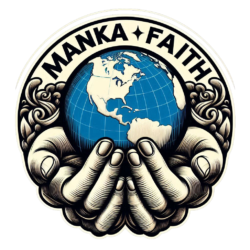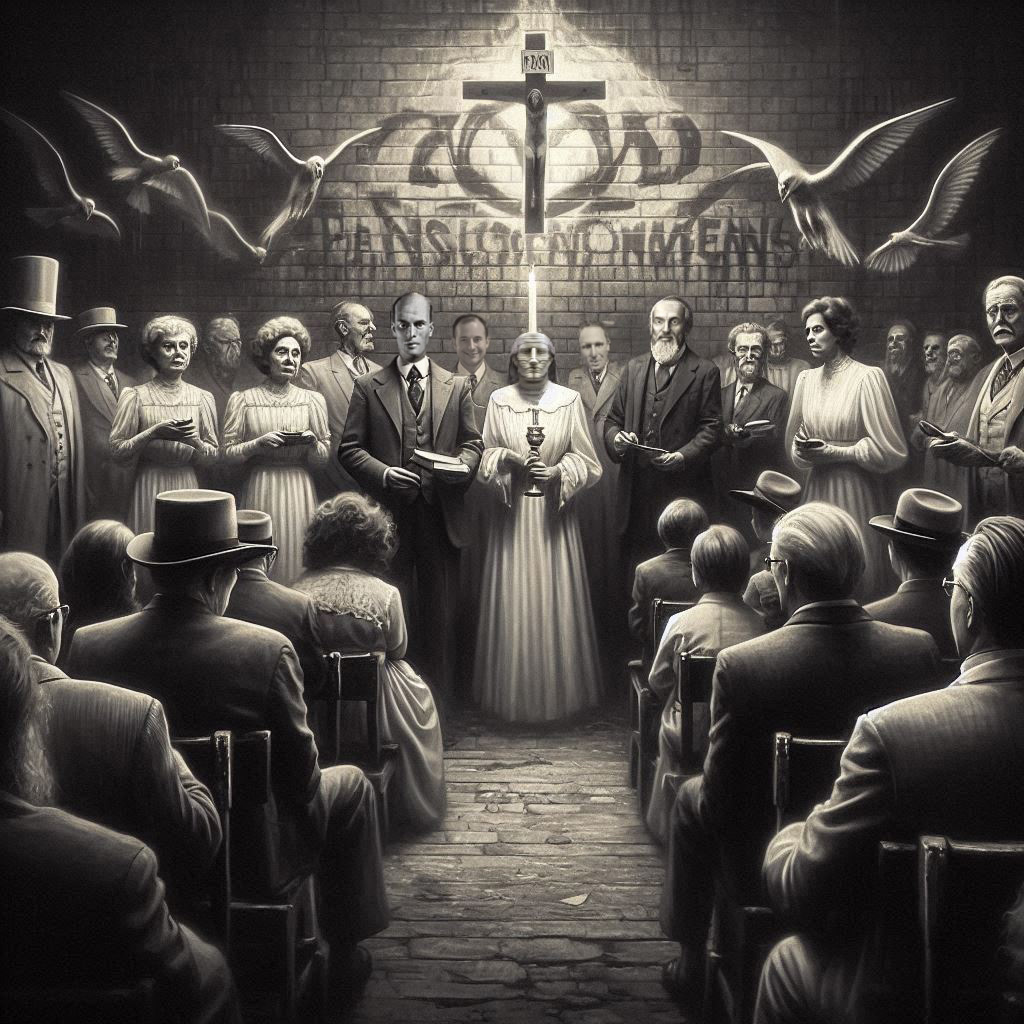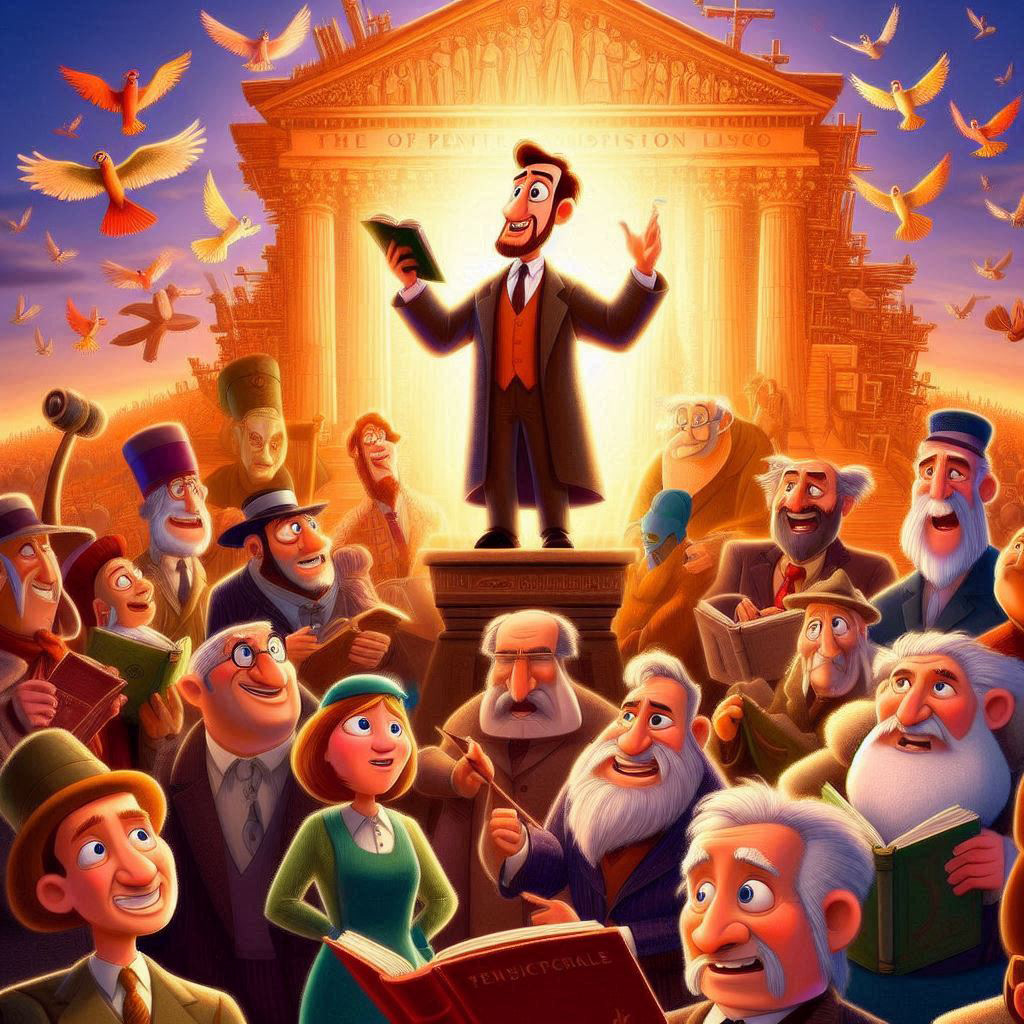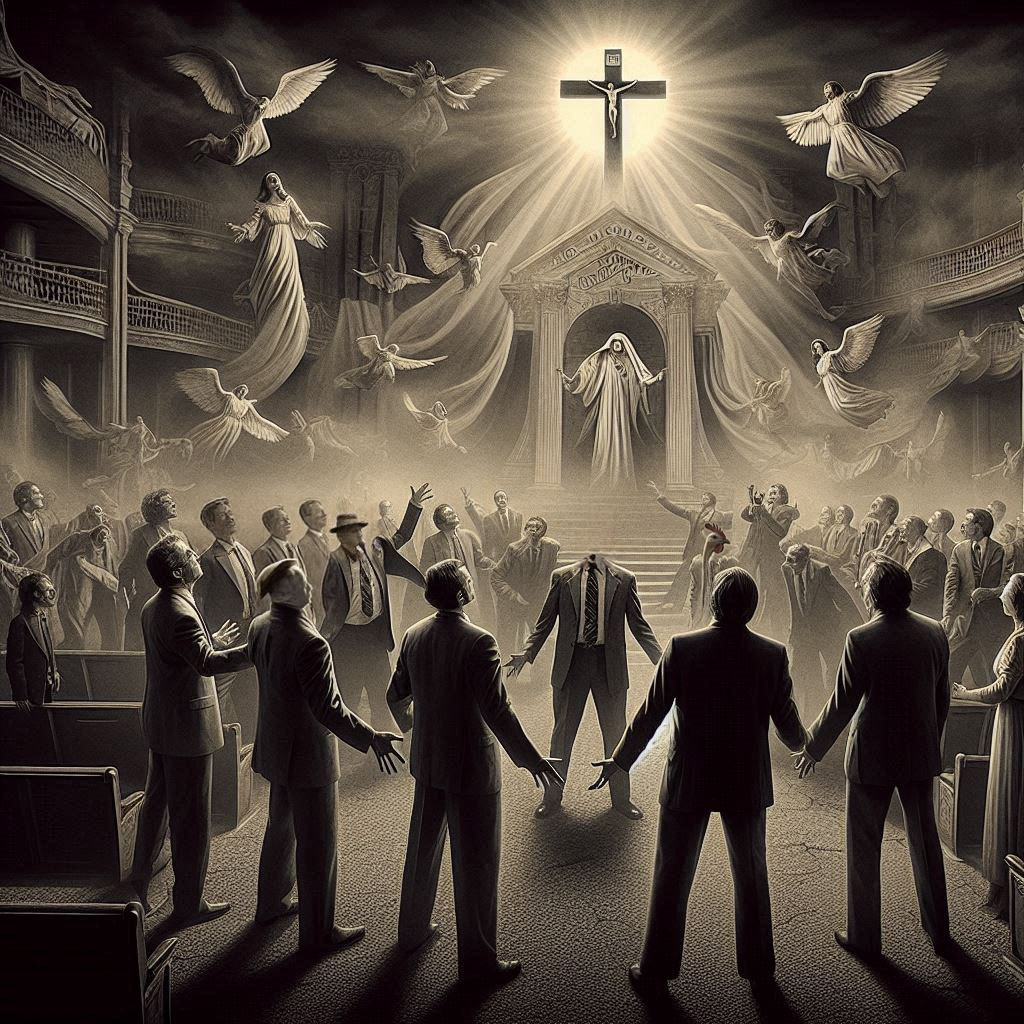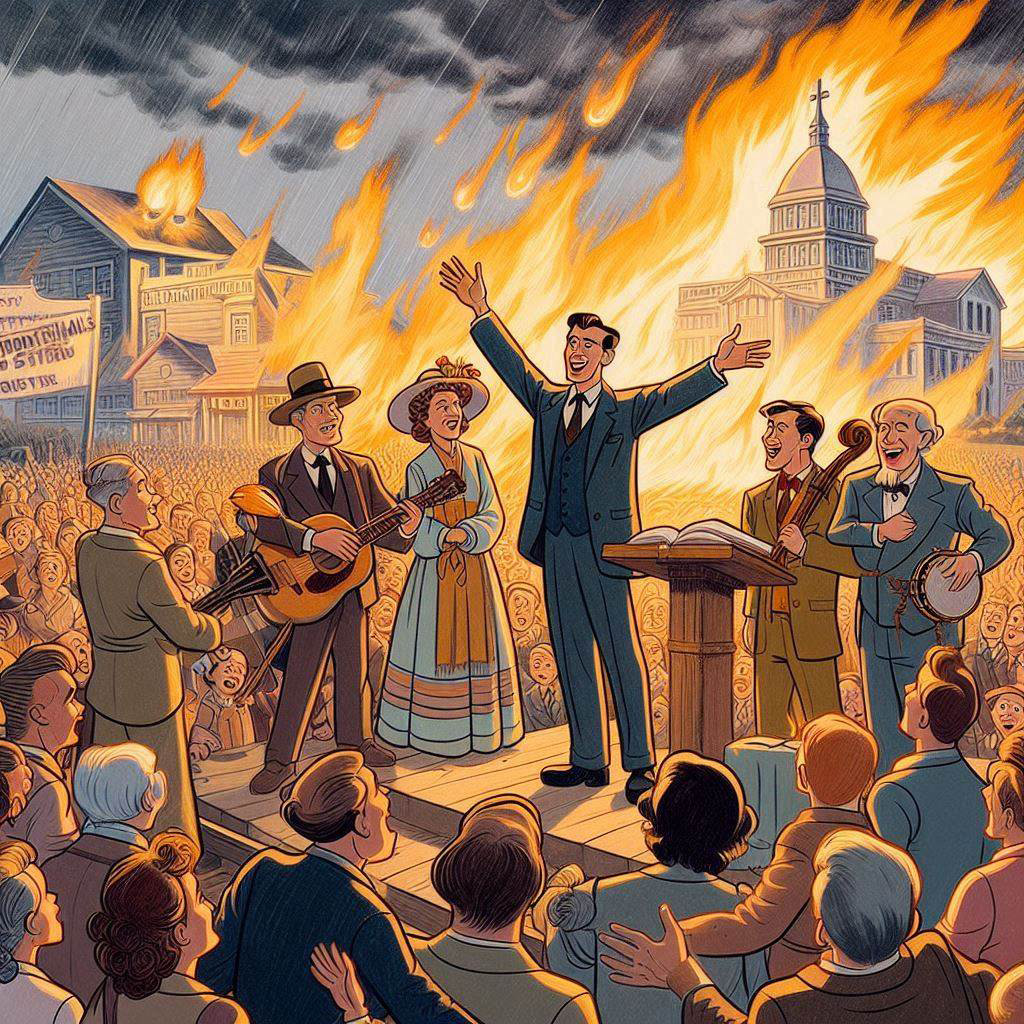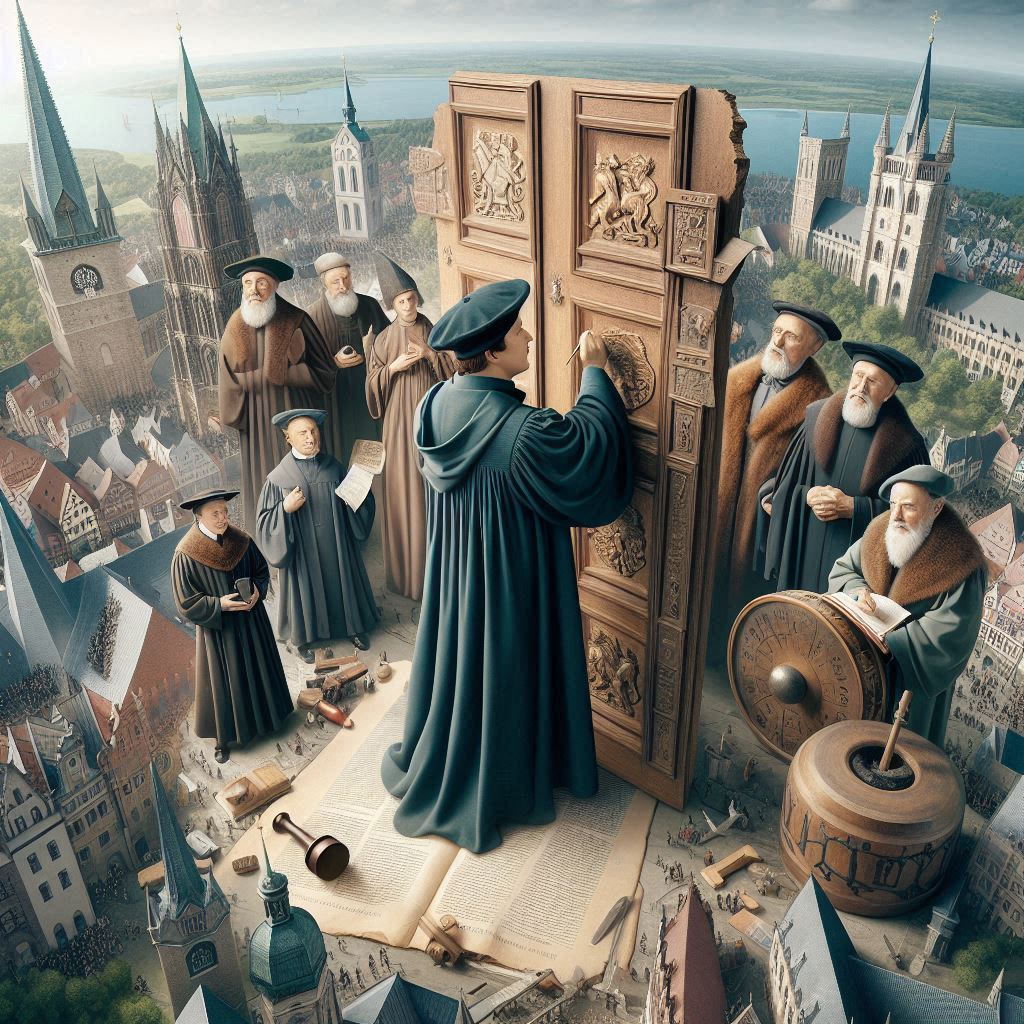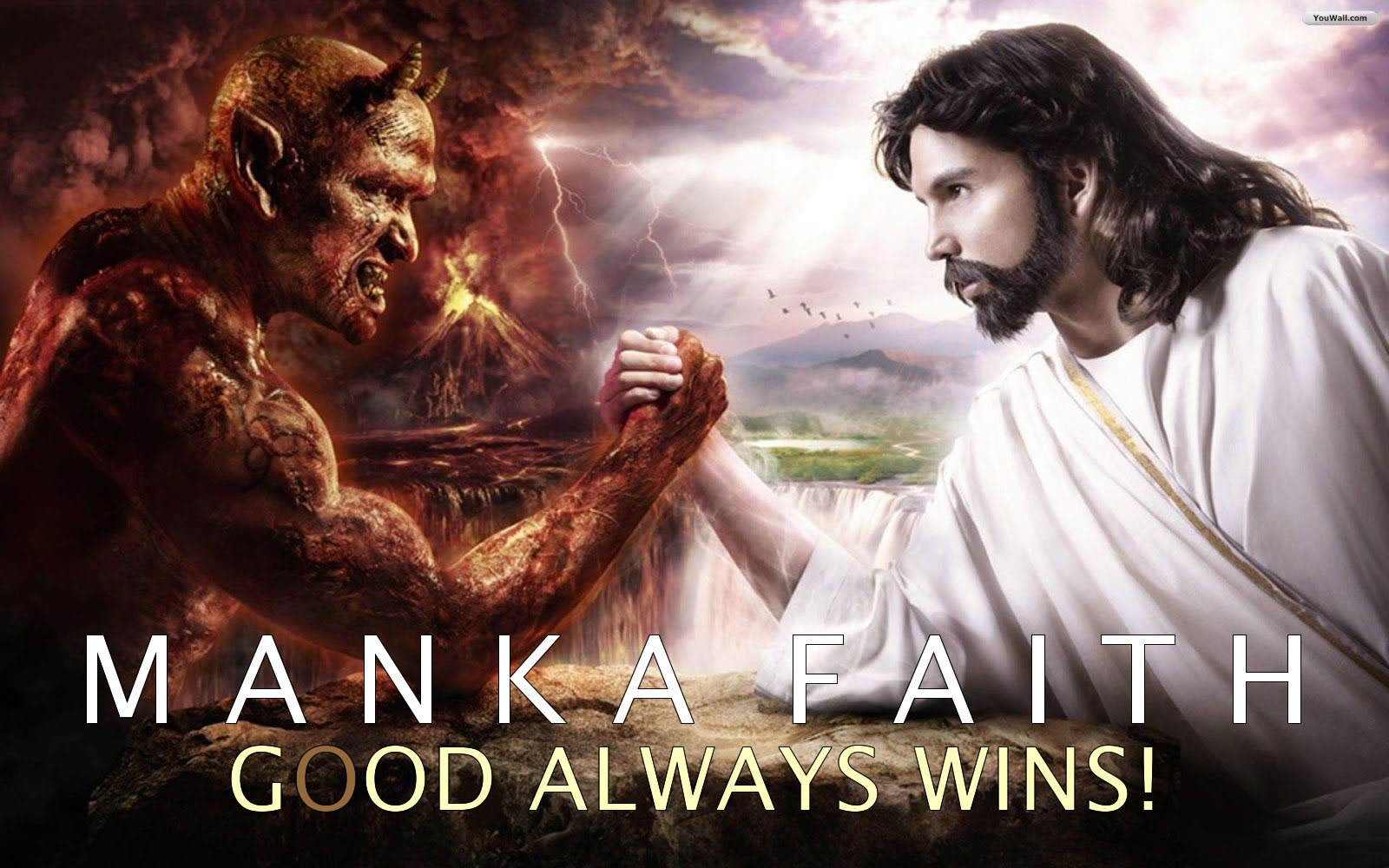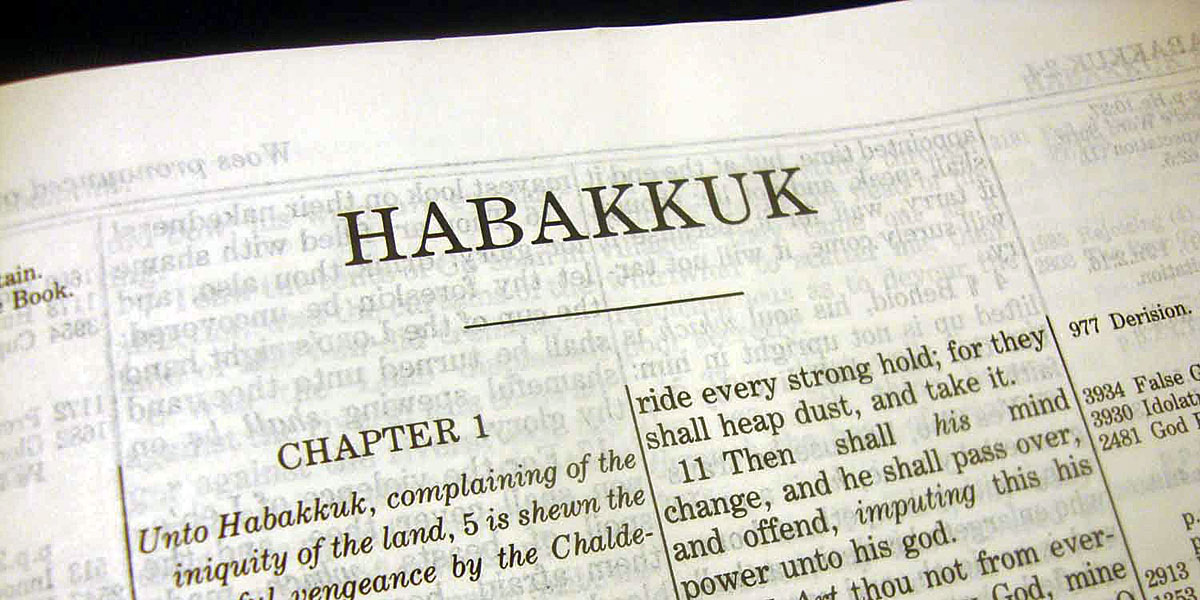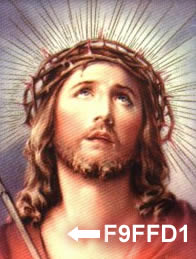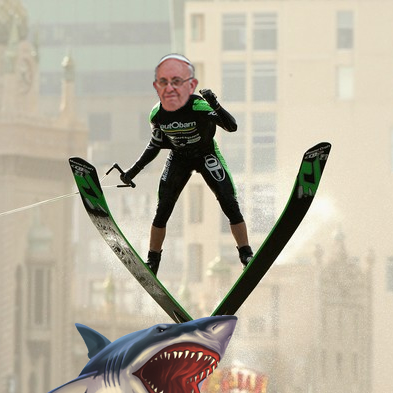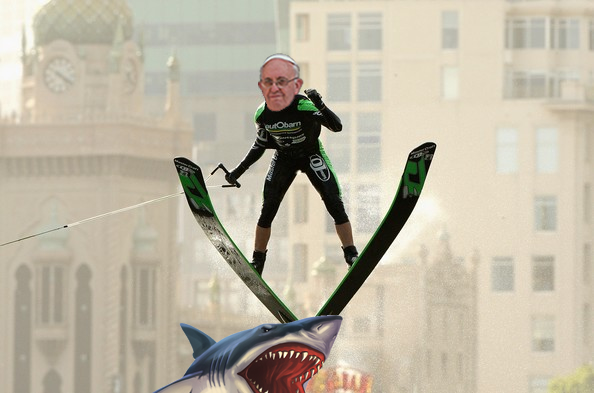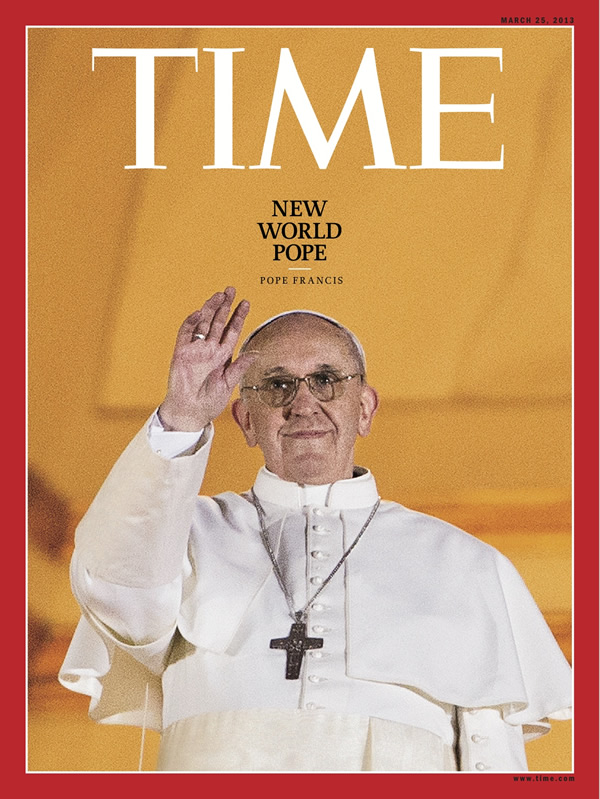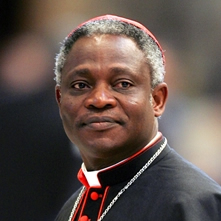What Was The Deal With Vatican II?
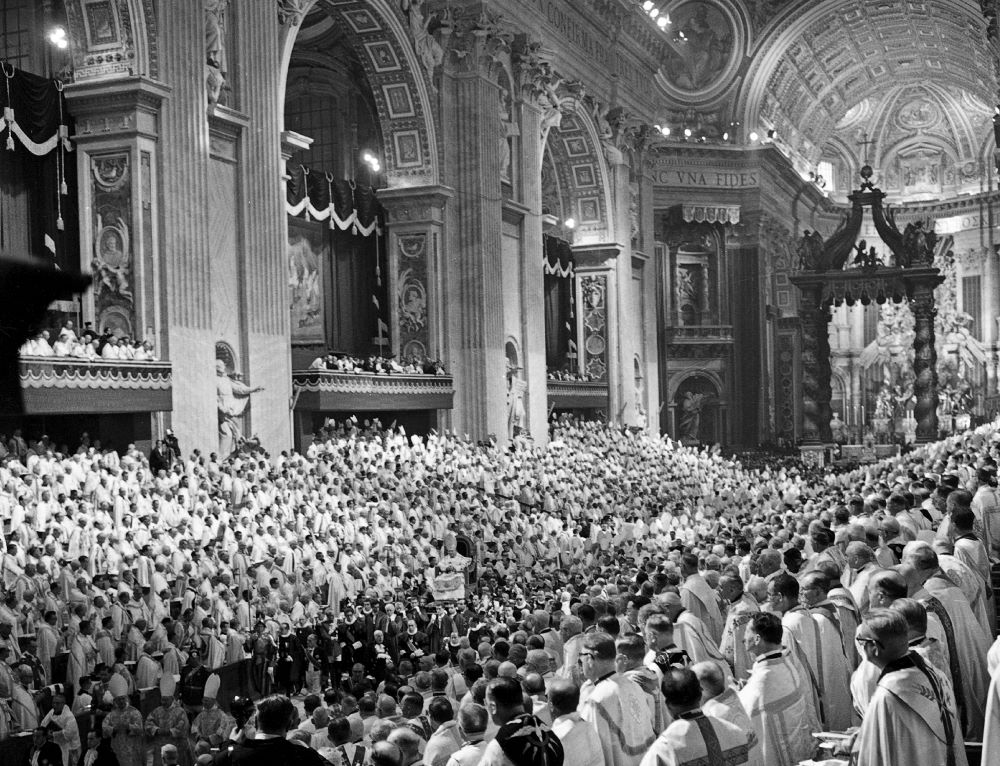
What Was The Deal With Vatican II?
In the not-so-distant past (October 11, 1962 – December 8, 1965), in the mystical realm of Vatican City, there arose a great gathering known as the Second Vatican Council. Picture if you will, a cosmic congregation of bishops, theologians, and pontiffs, all donning their ecclesiastical garb and convening under the hallowed roof of St. Peter’s Basilica.
Now, this wasn’t your run-of-the-mill church picnic, oh no. This was a seismic shift in the tectonic plates of Catholic tradition. The Vatican, in its infinite wisdom (and perhaps a dash of existential crisis), decided it was high time for a spiritual makeover, a renovation of the divine blueprint, if you will.
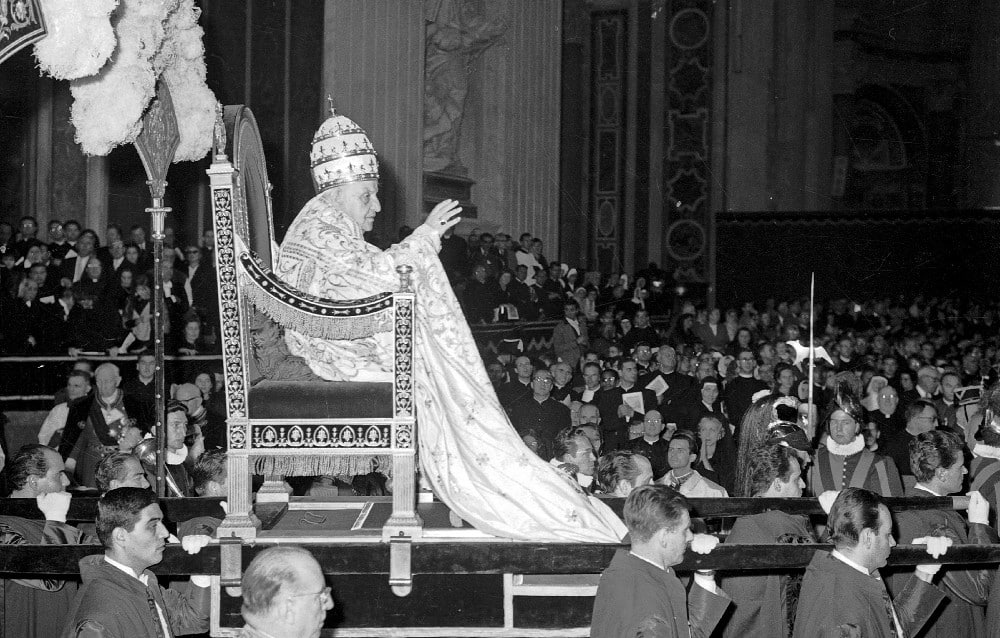
Enter Pope John XXIII, a man with the audacity to dream big and the humility to admit that maybe, just maybe, the Church could use a bit of sprucing up. He threw open the windows of the Vatican, both literally and metaphorically, inviting in the fresh breeze of modernity and dialogue.
And thus, Vatican II was born, a cosmic collision of tradition and progress, dogma and innovation. They tackled weighty matters like the role of the Church in the modern world, the liturgy, ecumenism, and religious freedom. It was like watching the universe itself unfold in real-time, with each decree and declaration reshaping the cosmic fabric of Catholicism.
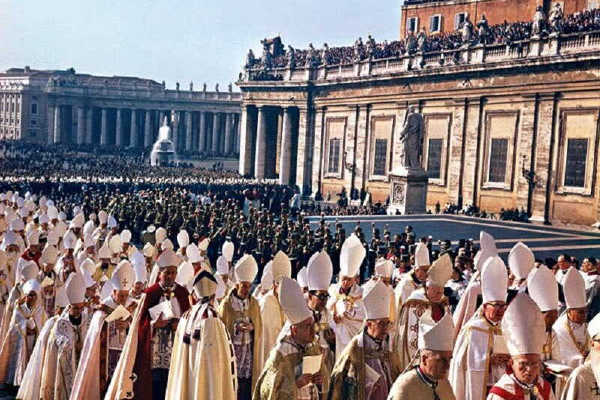
But like any good Biblical tale, Vatican II was not without its moments of absurdity and dark humor. Imagine bishops from around the globe, decked out in their finest robes, engaging in heated debates over whether to switch from Latin to the vernacular in their liturgical rites. Picture the perplexed looks on their faces as they grappled with the mysteries of divine revelation in a rapidly changing world.
Yet amidst the chaos and confusion, there emerged moments of clarity and grace. The Council fathers, inspired by the spirit of renewal, forged ahead with boldness and conviction, charting a course for the Church in the modern age.

And so, dear reader, the curtain falls on our cosmic drama, with Vatican II standing as a testament to the enduring quest for truth and transformation.
For in the end, perhaps the greatest miracle of all is the capacity of humanity to evolve, to adapt, and to embrace the mystery of the divine with open hearts and minds. So it goes.
 God’s Intern (Todd) – MANKA FAITH’S GOD BLOG
God’s Intern (Todd) – MANKA FAITH’S GOD BLOG
The History Of Lutheranism
The History Of Lutheranism
In the quiet corners of medieval Europe, amidst the whispers of the faithful and the shadows of ancient cathedrals, a rumbling began. It was a murmur of discontent, a yearning for truth unadorned by the opulence of the Church. This rumbling found its voice in a humble monk named Martin Luther.

Picture him, if you will, in his monastic cell, his eyes alight with the fire of revelation. Born of ink and parchment, Luther’s words were like thunderclaps in the tranquil landscape of religious orthodoxy. He dared to challenge the established order, to question the very foundations upon which the Church stood.
With the stroke of a quill, Luther ignited a conflagration that would sweep across Europe, leaving in its wake a new religious movement: Lutheranism.
But this was no mere rebellion; it was a reformation, a reclaiming of the true essence of Christianity from the clutches of corruption and excess.
The story of Lutheranism is one of upheaval and renewal, of fervent believers standing against the tide of tradition. It is a tale of courage and conviction, of ordinary men and women defying the powers that be in the name of faith.
Yet, as with all revolutions, Lutheranism was not without its trials and tribulations. The fires of persecution raged hot, threatening to consume those who dared to embrace this new way of worship. But like a sturdy oak in the midst of a storm, Lutheranism stood firm, its roots anchored deep in the soil of truth.

And so, the Lutheran faith endured, spreading its branches far and wide, casting a shadow of hope upon a world shrouded in darkness. From the cobblestone streets of Wittenberg to the distant shores of America, the legacy of Martin Luther lives on, a beacon of light in a world fraught with uncertainty.
In the end, the history of Lutheranism is not just a chronicle of religious doctrine; it is a testament to the indomitable spirit of humanity, a reminder that even in our darkest hours, faith has the power to illuminate the path forward.
The History of Presbyterianism
Presbyterianism traces its roots back to the Protestant Reformation of the 16th century. It emerged primarily in Scotland, but its influence spread to other parts of Europe and eventually to other continents through missionary efforts and immigration. Here’s a brief overview of its history:
- Reformation Origins: The Scottish Reformation, led by figures like John Knox, played a significant role in shaping Presbyterianism. Knox was heavily influenced by the teachings of John Calvin, particularly his ideas on church governance and theology.
- Formation of the Church of Scotland: In 1560, the Scottish Parliament officially abolished the authority of the Pope in Scotland and declared the Scottish Church to be Reformed. This led to the establishment of the Church of Scotland, which adopted a Presbyterian system of governance with representative assemblies of elders.
- Spread to England and Beyond: Presbyterianism also gained followers in England, particularly during the English Civil War in the 17th century. The Westminster Assembly, convened by the English Parliament in the 1640s, produced the Westminster Confession of Faith, which became a foundational document for Presbyterian churches.
- Immigration and Expansion: In the 18th and 19th centuries, Presbyterianism expanded through Scottish and Irish immigration, particularly to North America. The Presbyterian Church in the United States of America (PCUSA) was formed in 1789, becoming one of the largest Presbyterian denominations in the world.
- Diversity and Denominationalism: Over time, Presbyterianism diversified into various denominations, each with its own theological emphases and organizational structures. Some of the major Presbyterian denominations include the PCUSA, the Presbyterian Church in America (PCA), the Evangelical Presbyterian Church (EPC), and the Presbyterian Church of Scotland.
- Modern Challenges and Ecumenism: Like many other Christian denominations, Presbyterianism has faced challenges in the modern era, including declining membership in some regions and theological controversies. However, Presbyterian churches have also been involved in ecumenical efforts, seeking unity with other Christian traditions while maintaining their distinctives.
Throughout its history, Presbyterianism has been characterized by its emphasis on the sovereignty of God, the authority of Scripture, and the importance of orderly governance within the church. Today, Presbyterian churches can be found in many countries around the world, continuing to adapt and respond to the changing cultural and social contexts in which they exist.
The History Of Calvinism
THE HISTORY OF CALVINISM
Calvinism, also known as Reformed theology, is a Protestant theological system that emerged during the Protestant Reformation in the 16th century. It is named after John Calvin, a French theologian and pastor who played a significant role in its development.
Here’s a brief overview of the history of Calvinism:
- Early Influences: Before Calvin, there were significant precursors to the Reformed tradition, including figures like Martin Bucer, Ulrich Zwingli, and Huldrych Zwingli. Their theological ideas laid the groundwork for what would become Calvinism.
- John Calvin (1509-1564): Calvin’s most famous work, “Institutes of the Christian Religion,” published in 1536, became one of the most influential theological texts of the Reformation. Calvin emphasized the sovereignty of God, predestination, and the authority of Scripture. His theology spread rapidly, especially in Switzerland and France.
- Expansion and Growth: Calvinism gained ground throughout Europe, particularly in Switzerland, the Netherlands, Scotland, England, and parts of Germany. It became a significant force in the broader Protestant movement.
- The Synod of Dort (1618-1619): In response to theological challenges from Arminianism (a theological system that emphasized free will), the Dutch Reformed Church convened the Synod of Dort. This synod affirmed the teachings of Calvinism, including the doctrines of total depravity, unconditional election, limited atonement, irresistible grace, and perseverance of the saints, known by the acronym TULIP.
- Colonial America: Calvinism played a crucial role in the establishment of several colonies in America. Puritans, who were influenced by Calvinist theology, settled in New England, while Dutch Reformed and Presbyterian churches were established in other regions. Their influence shaped the early American religious landscape.
- Calvinism Today: Calvinism continues to have a significant presence in Protestant Christianity worldwide. Various denominations, including Presbyterian, Reformed, and some Baptist churches, adhere to Calvinist theology to varying degrees. Additionally, Calvinist ideas have influenced other theological traditions and have had a lasting impact on Western culture and thought.
Throughout its history, Calvinism has undergone various interpretations and adaptations, leading to different branches and denominations within the broader Reformed tradition. However, its core theological principles remain influential in many Protestant churches today.
MankaGoNow To Feature So Much Manka Faith!
Greetings greetings greetings!
We are so excited here at our “slightly” off the studio lot, very humble offices of Manka Faith.
Our offices may be plain and underfunded (and, frankly, freezing) but we are still the World’s Largest Faith-Based entertainment group (inside the World’s Largest Media Company).
After the recent announcement that Manka Bros. is producing OVER 400 NEW SERIES for the MankaGoNow over-the-top service, Manka Faith is ramping up production, basically quadrupling our content output!
IT’S CRAZY OVER HERE!!!
So much new Jesus shit coming your way (and, to be fair, some Jewish and Hindu stuff, too)!
I’m most excited for the fans… of religion… of goodness… of hope in this world.
It’s a great time to be a person with faith.
This is just a quick update for our Manka Faith God Blog fans (and there are many) of what new content we’ll be producing for the new MankaGoNow service (only $34.99 a month!).
The new Manka Faith content includes:
- Christian Lions (animated series, faith): Manka Faith inspirational children’s series about Lion missionaries bringing the word of Christ to other animals.
- The Death Of Jesus (documentary, faith): Manka Faith sends a documentary crew to the Middle East to find out what really happened to Jesus – and they really found out.
- Penny’s From Heaven (multi-year series, faith): Manka Faith’s blatant rip-off of “Touched By An Angel.”
- New Bible – Fixing The New Testament (reality series, faith): There’s a new Jesus with a new Bible with new Apostles and they’ve written a new Bible. This series tells you everything that changed from the old Bible and what we can expect when the world ends.
- In The Pew (reality series, faith): Every week, in the pew, Manka Faith brings you the latest from the world of religion. We’ll have interviews with Catholics, Lutherans, Presbyterians… and all the rest.
- Devoutrageous! (multi-year series, faith): You gotta feel it, people! Get up! Get up! The world’s biggest mega-church has pull-up bars above every pew and a tight ass funk band to fire up the crowd. My God, if Jesus don’t exist at least we’ll all be in shape when we die!
- Rapture Checkers (multi-year series, faith): Ten percent of those taken in the rapture was a mistake. This squad of “rapture checkers” investigate if the right ones were taken and drag back to Earth the ones that shouldn’t have gone.
- God? (reality series, faith): Manka Faith interviews victims of accidents, robberies, and horrible health issues who share their views on the existence of God. [Bottom line: they ain’t a fan.]
- Jesus V Mohammed (reality series, competition, faith): It’s a battle to the finish. The true Messiah will be revealed at the end of the season.
We’re even supporting a series from our atheist friends that is not produced by us because… #inclusion.
- Jonah & The Whale And Other Bullshit Stories About Bullshit (limited series, anti-faith): No God Productions (NOT affiliated with Manka Faith – but we are open minded so here’s the promotion) presents this nice alternative world (for our atheist subscribers).
So you can see why we’re so excited!
#Excited!
All this new production is on top of the films and shows we are already producing – which include our $300 million film adaptation of “The Book Of Habakkuk” which should begin production… soon.
The “Tween Jesus N’ Me” 2019 Stadium Tour…
And so much more. Watch this space!
 Josh – Manka Faith’s Summer Intern (Now Full-Time, Ho!)
Josh – Manka Faith’s Summer Intern (Now Full-Time, Ho!)
The Color of Jesus
Good morning.
There has been quite a bit of debate lately (thanks to the amazing Megyn Kelly at Fox News) about the color of Jesus.
Researchers at Manka Faith have solved this problem. Based on carbon dating from 30 A.D., it has been determined that the color of Jesus is this (and for you graphic designers), here is the code:
F9FFD1 (seen below)
 God’s Intern – Manka Faith
God’s Intern – Manka Faith
Has Pope Francis Jumped The Shark?
UPDATE: Now Pope Francis is on the cover of Rolling Stone (he’s jumping a freakin’ whale now!)
PREVIOUS POST: With the announcement that Pope Francis is Time Magazine’s Person of the Year, I think it’s time to ask the question – has Pope Francis jumped the shark?
In the past week, revelations have come that he used to be a bouncer, at night he goes out in disguise and gives blessings to the poor on the streets of Rome, he formed a task force on the Child Abuse Scandal – and now, he’s Person of the Year!
And he’s on Twitter! And he lives in common quarters. And he takes the bus.
It’s too much – too soon.
We’re Poped Out!
We like our Popes to be mysterious, even a bit creepy – like Ratzinger (Benedict XVI).
Pope Francis is someone you can watch a football match with while doing jello shots and eating sausage.
That’s what I do with my asshole friends (especially Lance) – not the leader of the Catholic church.
This guy had better pull back into the shadows or all will be lost.
More draconian, less peace-and-love-ian.
Religion is not a happy business. It is deadly serious.
I think it’s time to move back to Dark Ages before people actually like going to Church again.
Remember, the Church is supposed to put the Fear of God in people. Not gelato.
 God’s Intern (Steve) – Manka Faith’s God Blog
God’s Intern (Steve) – Manka Faith’s God Blog
Time Magazine Person of the Year – POPE FRANCIS
Great news, Pope fans!
Francis has been named Person of the Year by Time Magazine.
That is all.
Dominic Lanza – Sr. Vatican Correspondent – Manka Faith God Blog
Fear Of A Black Pope
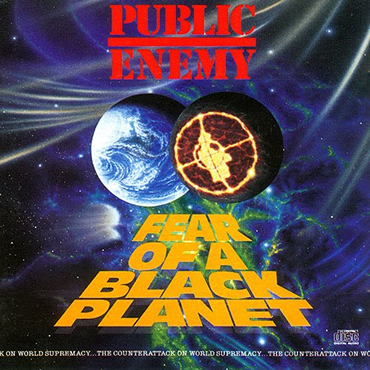 Public Enemy must re-form and remix “Fight The Power” from their 1989 iconic CD “Fear of a Black Planet” and call it “Fear of a Black Pope.”
Public Enemy must re-form and remix “Fight The Power” from their 1989 iconic CD “Fear of a Black Planet” and call it “Fear of a Black Pope.”
Almost every news story mentions that Cardinal Peter Turkson (below) from Ghana has a legitimate shot to become the church’s first black pope.
Seriously?
We know this will never happen in our lifetimes.
There is a greater chance that everyone in the Gaza Strip will convert to Judaism than there is for a black Pope in the Catholic Church.
And the Church should be ashamed of itself (even more than it currently is).
The same can be said for Cardinal Luis Antonio Tagle from the Philippines and Cardinal Odilo Scherer of Brazil (though he has a million times better chance than the African or Asian candidates – who have zero chance).
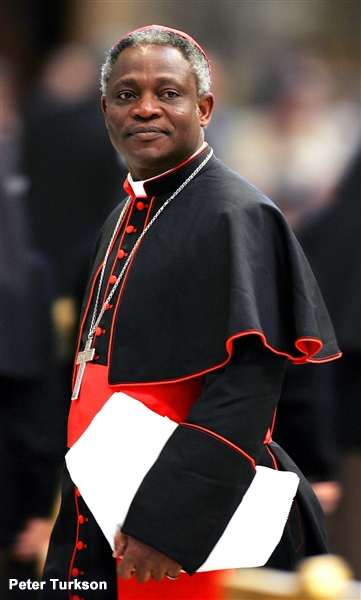 At least Cardinal Scherer is the right color (German descent will do that for you).
At least Cardinal Scherer is the right color (German descent will do that for you).
All the speculation, all the drama this week will come down to nothing but a European Pope – most likely Italian – and that’s the reason the Church is in big trouble.
I have never seen such a complete and insane inability to think differently or of the future.
It’s stunning, frankly.
This unwillingness to adapt to changing times is what will eventually bring down the Church (if it hasn’t been brought down already).
As a a die-hard Cathlolic, this makes me sad.
All the excitement around this week in Rome with the Conclave and the white smoke (Is it white? Is it black? Is it green?) and the eventual Habemas Papam will lead to depression and criticism from all around the world.
And the Church will once again be stuck until the next Pope selection begins and the brief moments of hope we have before they name another European.
Ah, well… at least I am in Rome and I have wine, cheese and gelato.
Buona fortuna!
 Dominic Lanza – Sr. Vatican Correspondent – Manka Faith God Blog
Dominic Lanza – Sr. Vatican Correspondent – Manka Faith God Blog

